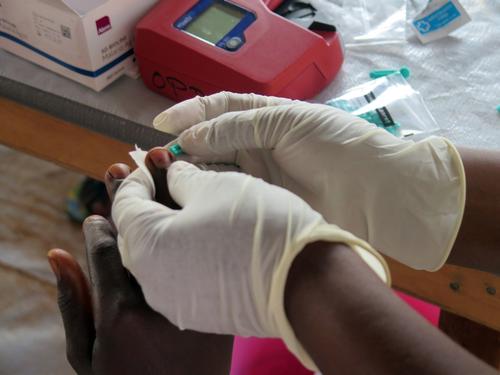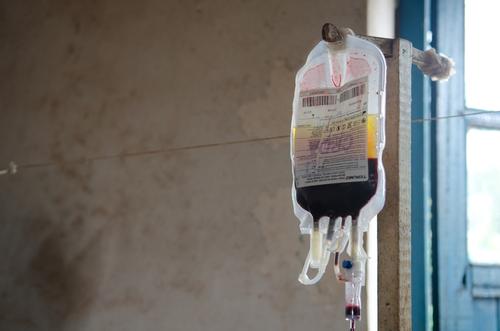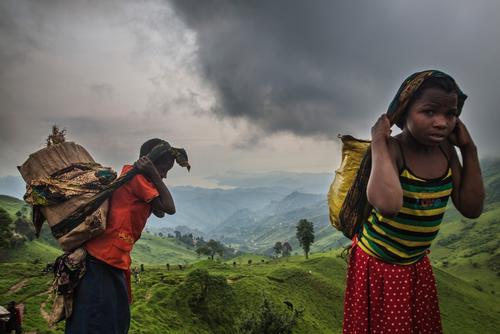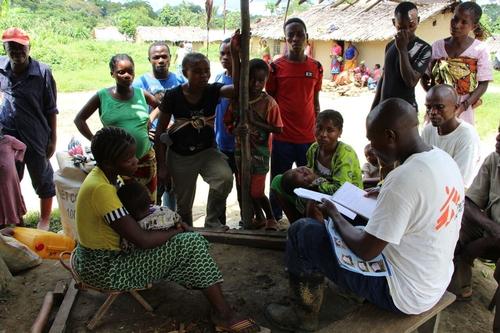A malaria surge in Haut-Uélé province, in northeastern Democratic Republic of Congo (DRC), has seen 1,600 children admitted to hospital with severe malaria and more than 40,000 people treated for the disease in the past seven weeks by an emergency team from Médecins Sans Frontières (MSF), working alongside local staff in health facilities in the Pawa and Boma-Mangbetu areas.
“With such a huge influx of patients, local health facilities had run short of drugs to treat malaria,” says Stéphane Reynier de Montlaux, MSF emergency coordinator in Pawa. “Since the MSF team arrived on 09 May, we have made sure that rapid malaria tests and antimalarial treatment are available at 32 health centres across the region in order to treat cases of simple malaria and prevent complications. However, getting supplies of drugs into the region continues to be a challenge and our logistical support is still highly needed.”
MSF’s emergency team has also set up treatment and intensive care units within the main hospitals in both Pawa and Boma-Mangbetu, providing additional doctors and nurses, as well as drugs and vital equipment, including a 24-hour supply of electricity, beds, mattresses and medical supplies.
95% of our patients tested positive for malaria. More than four in five of those admitted to hospital with complicated malaria are children under the age of 12, who are particularly vulnerable to the disease.
“Many of the young patients arrive at the hospital in a serious condition,” says Stéphane. “Many have severe anaemia and need blood transfusions, but there are not enough blood donors to supply the hospitals' blood banks.”
“We are also seeing a significant number of cases of severe malnutrition amongst the patients, so we have also had to treat malnutrition and train local health staff in how to deal with it,” says Stéphane. Malnutrition weakens children’s immune systems, making them more susceptible to other deadly diseases, including malaria.
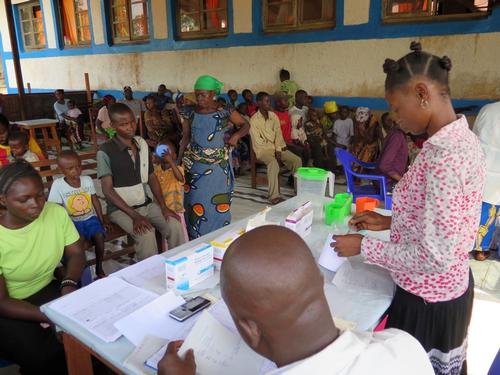
In the health centre in Babonde, midway between Pawa and Boma-Mangbetu, MSF has set up a stabilisation unit for people who are unable to reach a hospital. In some remote areas, people live more than 50 km from the nearest hospital, along roads that may be impassable, while the cost of transport is often unaffordable.
MSF aims to make improvements to the way in which patients with severe malaria are referred to hospital, as well as improving the skills of local healthcare staff, who are on the frontline of patient care. The team is also working on improving community awareness of malaria, so that people with symptoms receive treatment as quickly as possible.
Other health areas have also raised the alarm over malaria. After an increase in malaria cases was seen in the Dingila region of Bas-Uélé province, an MSF team was sent to the area. Although the situation has stabilised, the number of cases around Dingila remains high. Local people are also experiencing difficulties accessing treatment, mainly because health facilities have run out of drugs. The MSF team is planning to support the health system in taking care of severe cases especially in rural areas.
The current surge in malaria in Haut and Bas Uélé is almost unprecedented. “We have only ever encountered a similar situation once before,” says Stéphane. “Between June and October 2012, MSF treated more than 60,000 children in the areas of Ganga-Dingila, Pawa, Poko and Boma-Mangbetu. This year, we responded earlier and have worked closely with the authorities to curb the outbreak. But while the number of cases appears to be decreasing in some health centres, this is not the case everywhere and it is far too early to let our guard down as the malaria peak season is beginning.”



